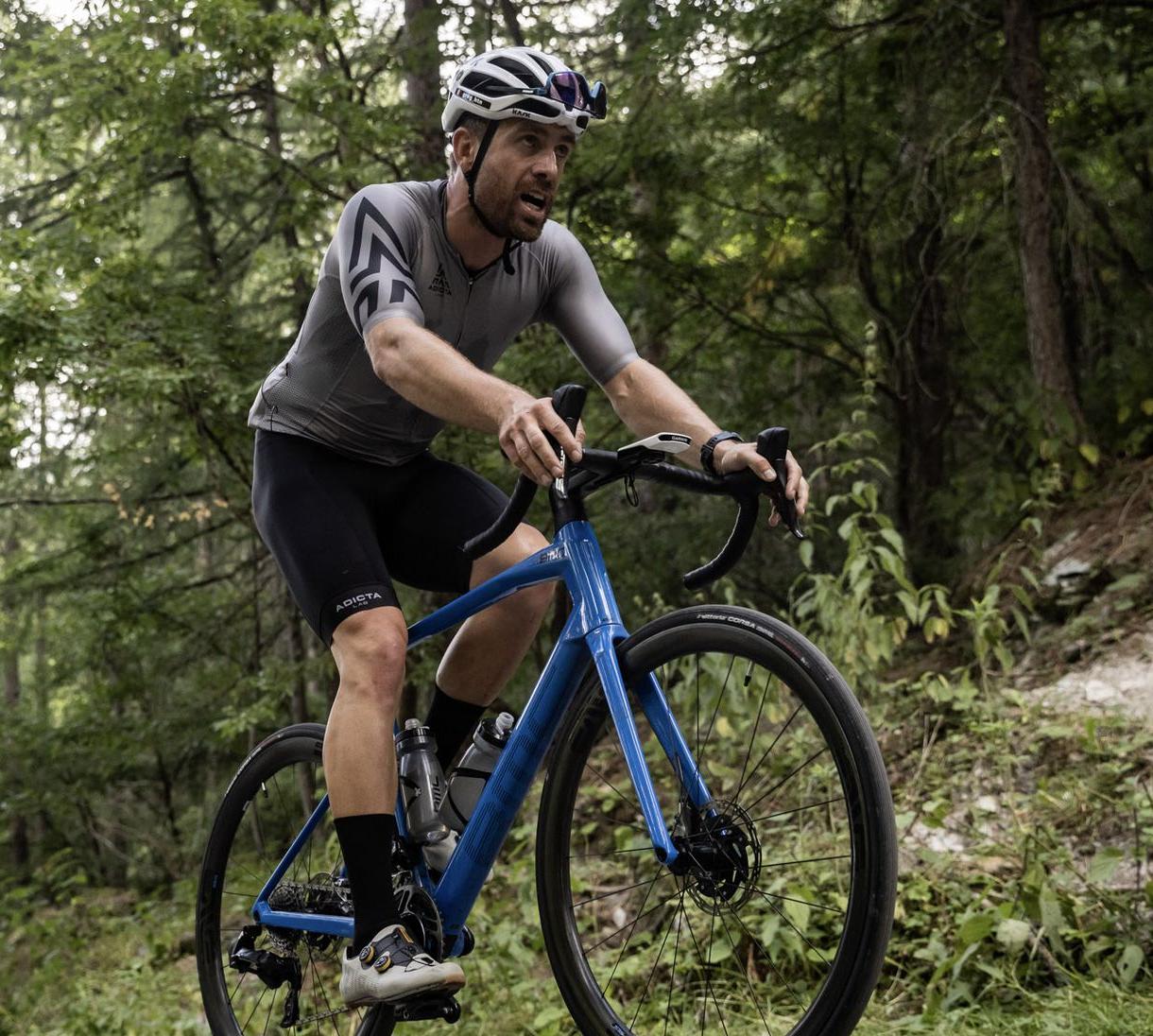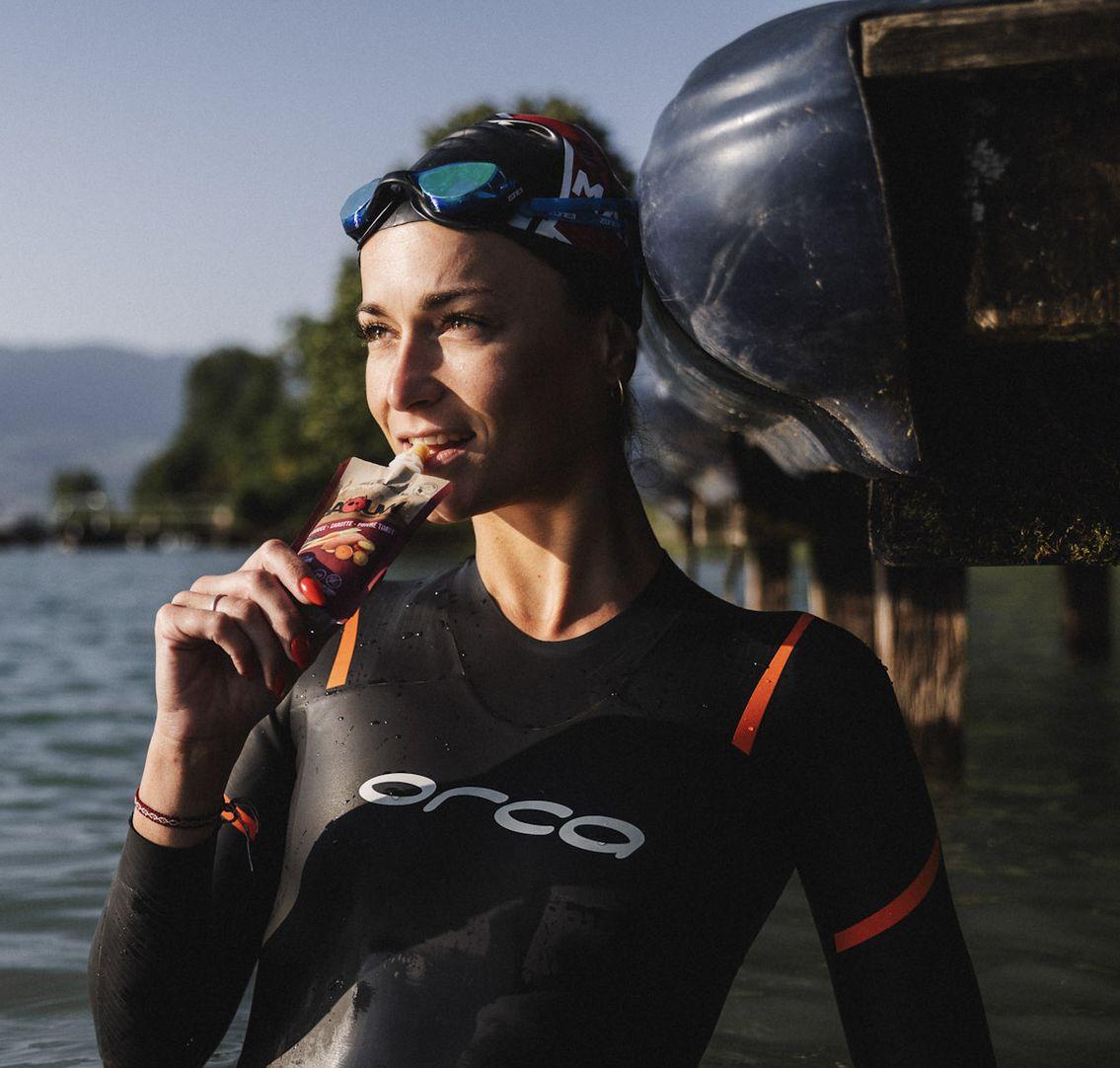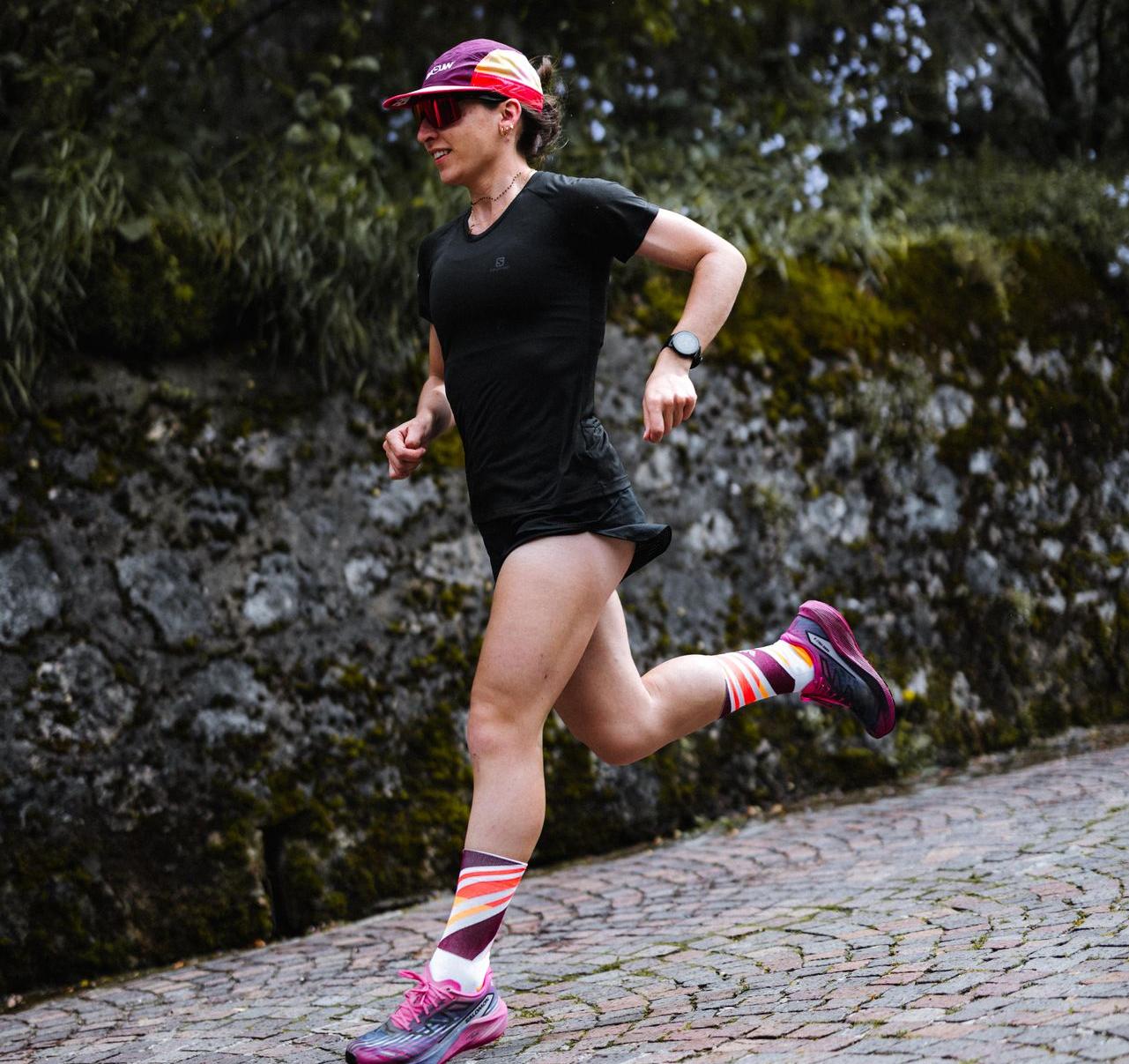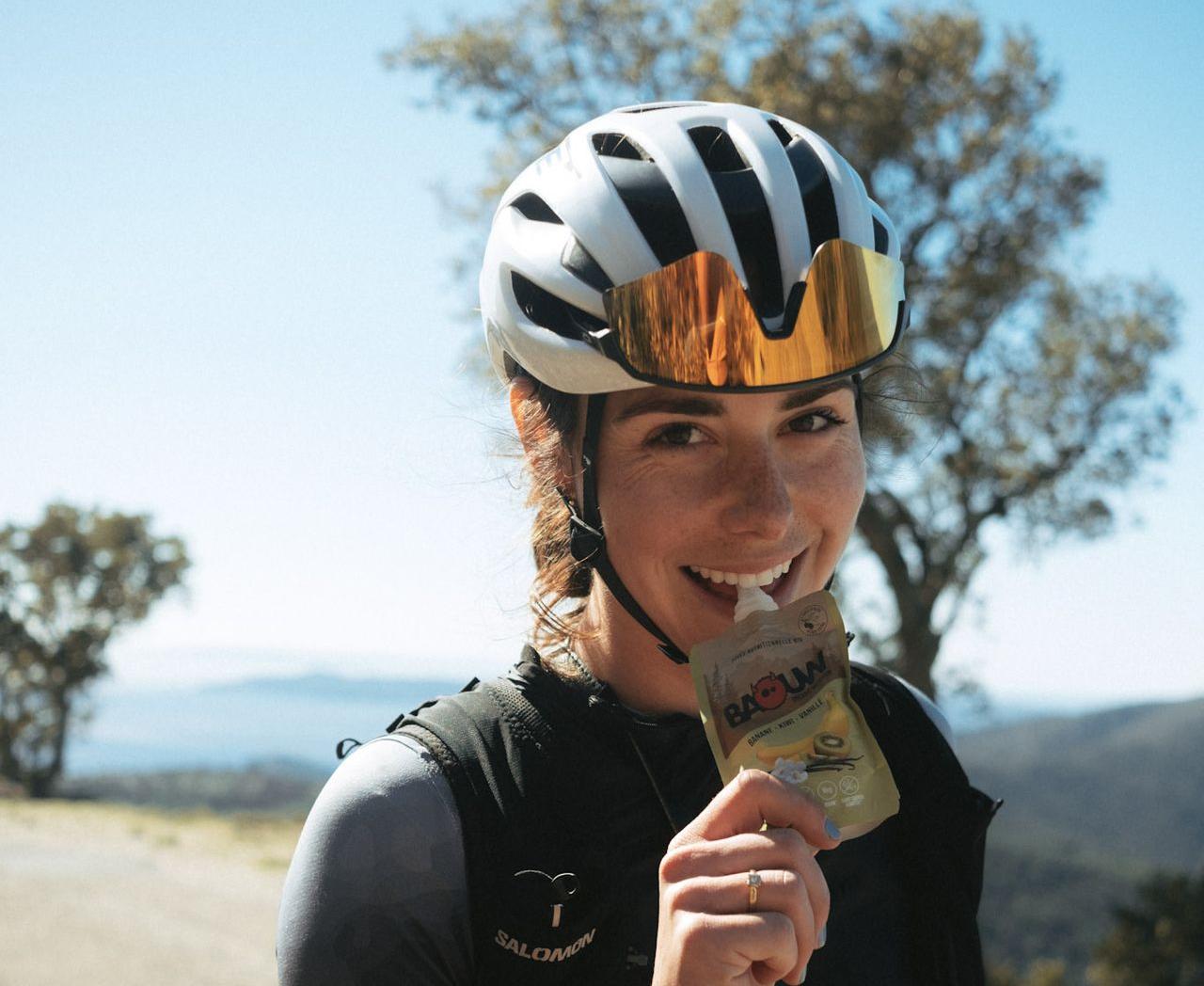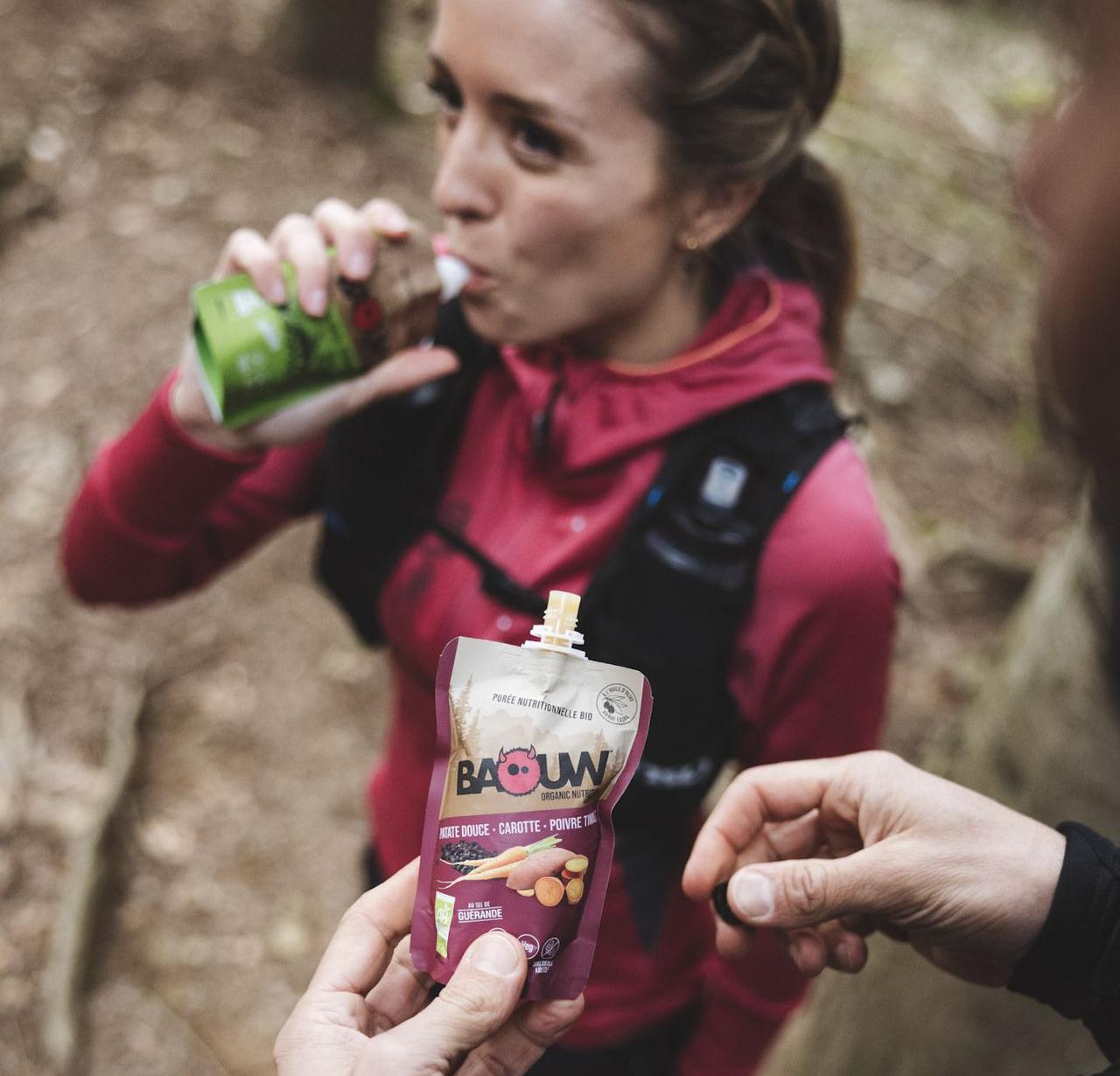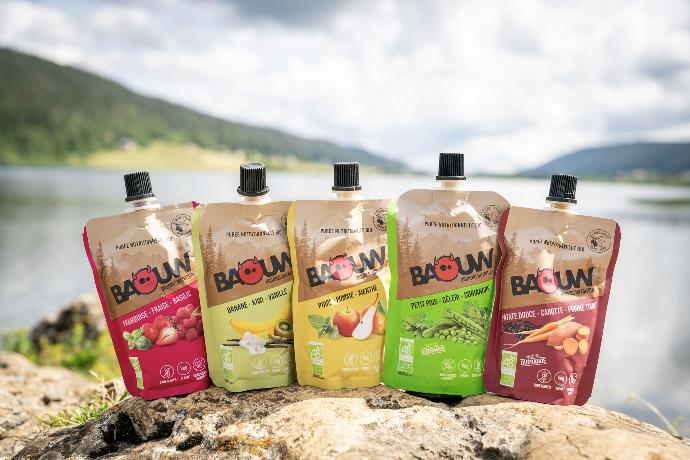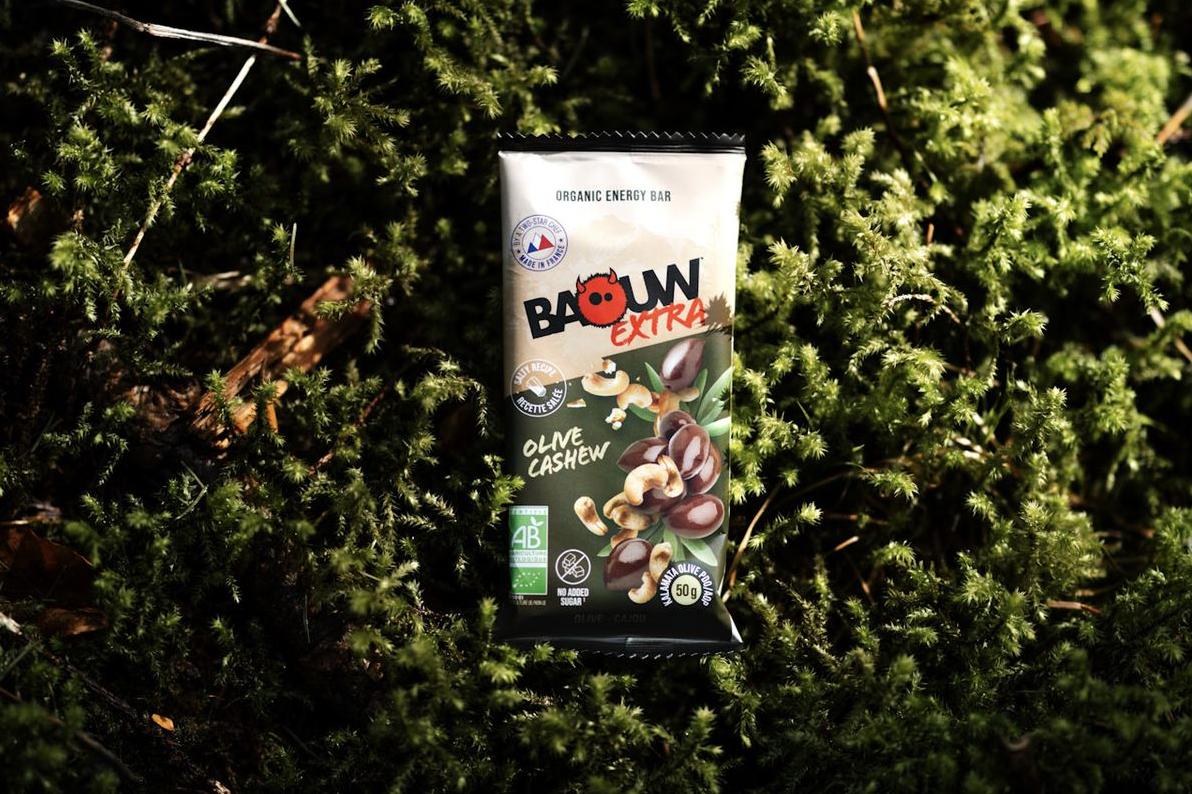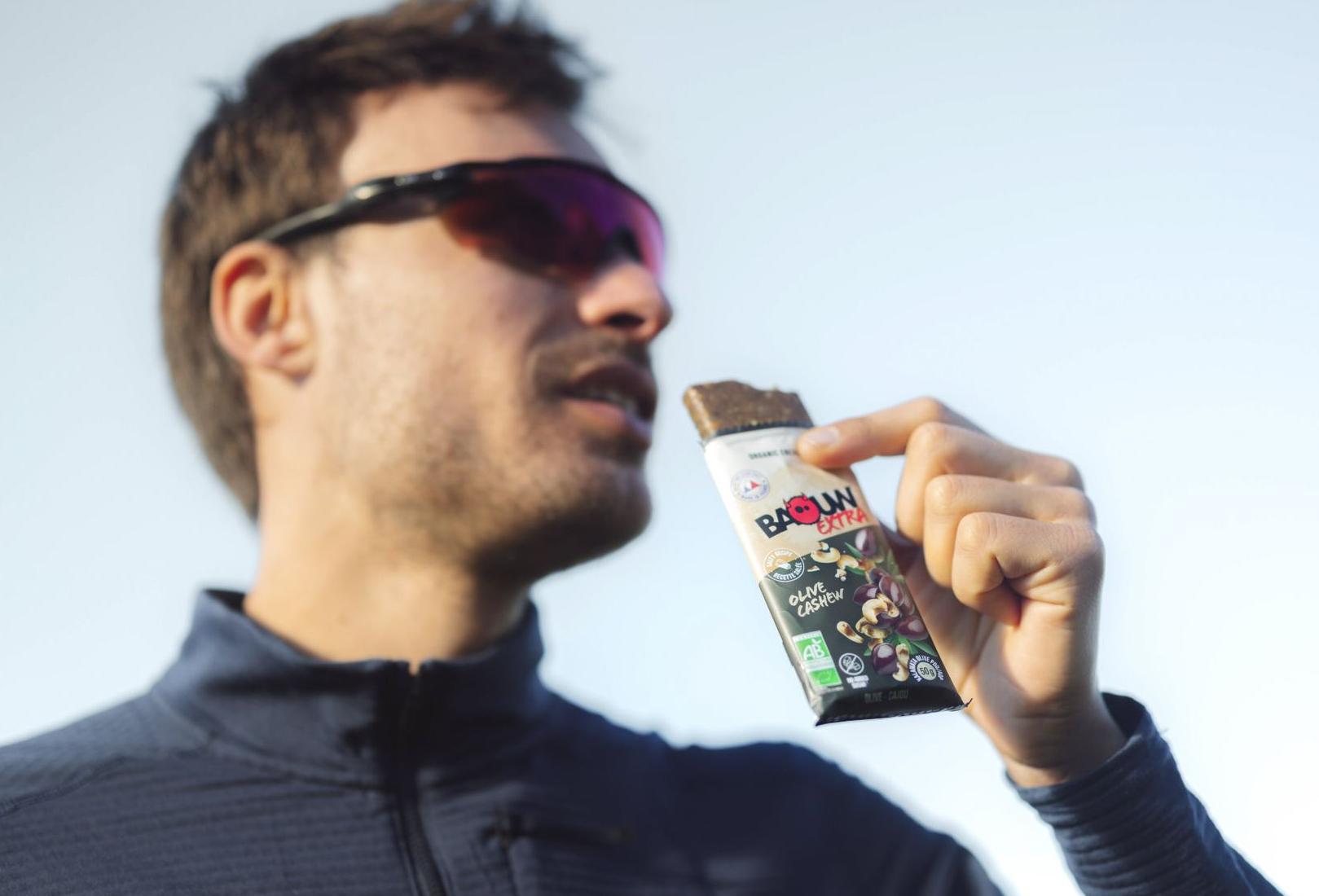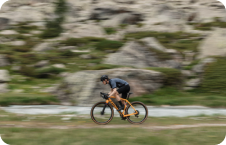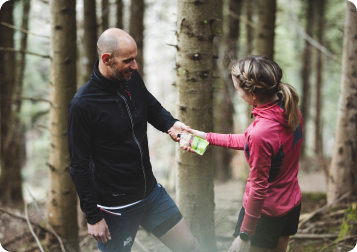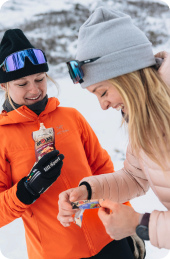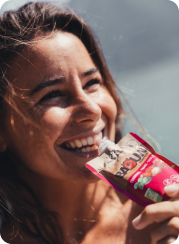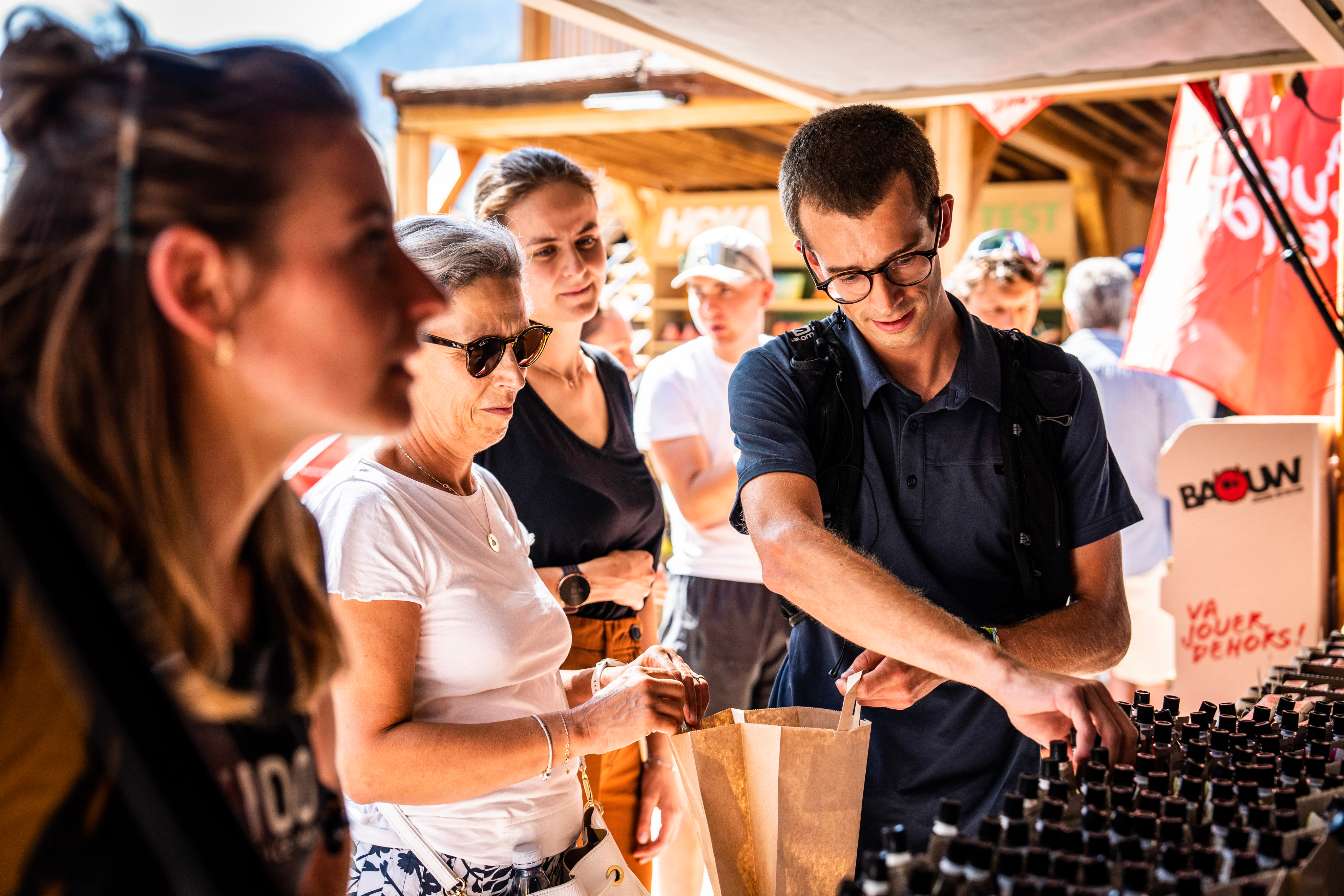To be 100% optimal, the training approach can go further than ‘physical’ preparation by incorporating a tailor-made nutritional programme designed to provide the best conditions for the body on D-day.
The triathlon, a complete discipline par excellence, also puts the body to a severe test by putting it under long-term strain and involving a sequence of swimming, cycling and running sessions. So you need to provide your body with very specific nutrients and leave nothing to chance when it comes to preparing your meals. But in practical terms, what impact does this succession of events have on the body? What diet should you choose ahead of a triathlon? Find out in our article!
The effects of triathlon on your body
As a demanding sporting event, triathlon causes a certain amount of physiological stress. Energy depletion is one of the first concrete consequences on the body: triathletes use large quantities of energy during the competition, mainly in the form of muscle and liver glycogen. This is a derivative of carbohydrates, stored in the liver and muscles, which acts as the fuel available during physical exercise. Depletion, i.e. a reduction in these energy reserves, leads to fatigue and the need for an adequate food intake during the event. Not ideal if you want to finish top of the triathlon!
Par ailleurs, l'exercice intense augmente la production de radicaux libres dans les cellules, conduisant à un stress oxydatif susceptible d’endommager les protéines et les lipides. A la clé, fatigue musculaire et récupération prolongée… Enfin, les microlésions musculaires dues à l’effort soutenu propre au triathlon induisent une réponse inflammatoire. Or, si l’inflammation est nécessaire à la réparation des tissus, un excès peut retarder la récupération et augmenter le risque de blessure. C’est pourquoi une alimentation spéciale pré-triathlon se doit de trouver le juste équilibre entre amélioration des performances globales et de la capacité de récupération, sans pour autant fatiguer l’organisme à travers le processus de digestion.
Pre-triathlon nutrition, to be implemented one week before the event
The idea is to optimise the body's glycogen reserves so that it can ‘help itself’ during the effort. And to do that, we advise you to start by... doing exactly the opposite between D-7 and D-4! During these 3 days, and to achieve a high level of glycogen at the start of the triathlon, it's a good idea to adopt a diet low in carbohydrates and high in lipids (fatty acids) and proteins. As a reminder, not all fatty acids are to be demonised, and what interests us here, in a pre-triathlon context, are unsaturated fatty acids. Good fats', in short. .
Unsaturated fatty acids to consume before a triathlon
The fats recommended for the body are found in the following foods in particular:
- oily fish, including salmon, trout, mackerel, sardines and herring
- certain oils, such as flaxseed, olive, walnut or hempseed oil
- flax, hemp and sunflower seeds
- walnuts and cashew nuts
Recommended proteins between D-7 and D-4
There are many different sources of protein:
- red and white meats, lean meats such as poultry
- charcuterie, which we suggest you choose without sulphites, of very good quality and to include in moderation in your meals, as a supplement
- eggs (if your hens are also fed on flax: a winning combination!)
- dairy products (ideally sheep's milk or gluten-free/spelt bread, which are better for digestion and health)
- fish and seafood
We should also add that plenty of physical activity is recommended during this initial phase. The aim is to force the body to tap into its glycogen reserves.
The ideal diet on D-3 of the triathlon
On day 3 of the triathlon, it's time to change course and ease up on the fat and indulge yourself with carbohydrates. As for proteins, the recommended intake (for a healthy adult) is 0.8 to 1 gram of protein per kilogram of body weight per day.
To boost your glycogen stores, you can turn to foods rich in complex carbohydrates: bread, pasta, cereals, potatoes, or pulses such as lentils or chickpeas. In the case of bread, pasta or rice, the ideal is to opt for the wholemeal version. With wheat, quinoa, millet or chickpea and bean hummus on wholemeal bread, there's plenty to choose from during this phase. As for physical activity during this period, it should be very moderate.
What to eat the day before a sporting event?
It's all about preserving digestive function! The important thing is not to impact on your digestion and to ensure you get the quality sleep you need before an effort as intense as a triathlon. To do this, you need to compose a plate rich in complex carbohydrates, moderate in protein and low in fat. Fibre-rich vegetables and pulses (particularly peas, artichokes and spinach) should be eaten in moderation, simply to avoid intestinal discomfort or even stomach upsets, which are rarely welcome during a sporting event! White meat served with semi-complete pasta and courgettes, for example, is a wise choice. If you want a sauce for your meal, we recommend making it with yoghurt and lemon juice: it's as good as it is healthy before the event..
It's the big day!
The triathlon is today? Then plan a 3-hour window between your last meal and the start of the race. Once again, your menu should include easily digestible carbohydrates (so goodbye wholemeal bread) and a small portion of protein. Yoghurt, eggs, oatmeal, bananas: the choice is vast! !
During the triathlon, there's nothing better than relying on andenergy gels, which will provide you with the nutrients you need to maintain your performance. Rich in natural sugars, simple to ingest during exercise, easy to digest and with a moderate glycaemic index, they'll help you perform well and prevent you from feeling drained..
Eating well during endurance
Of course, we can't help but point you in the direction of our Baouw designed for athletes AND all those who want to look after their health with healthy snacks. As experts in sports nutrition, we've designed rich in carbohydrates from natural fruit sugars, lipids and vegetable proteins to help you keep going during heavy exercise sessions and meet your body's needs. .
In the case of a triathlon, you can eat a bar every hour, opt for a compote or a gel every half-hour as you wish... or alternate between the three. Don't forget that these are general recommendations, which you can adapt slightly according to your nutritional needs. Finally, one last recommendation relating to your diet during the triathlon: don't choose this day to try a new product! Bars, gels or compotes in a variety of flavours: whatever you choose, test it out during your training sessions to make sure it suits your body perfectly.
The ins and outs of the ideal pre-triathlon diet
The importance of hydration before the event
All these recommendations on pre-triathlon nutrition are, of course, in addition to a healthy lifestyle. Preparing for a physical effort of this kind is a holistic process, which includes sports training, quality of sleep, a sound mental state and staying well hydrated. Before a triathlon, you are strongly advised to drink 2 litres of water a day, but also to avoid alcohol and soft drinks, for the following reasons in particular: :
- the risk of dehydration, which can affect performance and recovery
- the impact on sleep, since alcohol can disrupt sleep quality and, once again, affect performance on the day of the triathlon
- reduced glycogen reserves, as alcoholic beverages interfere with the synthesis of this complex carbohydrate and thus limit the energy reserves available during the event
- disturbance of blood sugar levels, due to the refined sugars in soft drinks, which can lead to a sudden feeling of tiredness
- the absence of beneficial nutrients, as soft drinks do not provide essential nutrients, unlike gels énergétiques which are perfectly suited to endurance sports.
Nutrition after a triathlon
Stay well hydrated after the race!
Once the triathlon is over, you need to continue to look after your body in the days that follow to encourage physiological recovery. After a succession of three events, the priority is to replenish your glycogen stores, but also to rehydrate. On the one hand, water losses are particularly high in this sporting event, and on the other, sweating is synonymous with sodium loss, which must be replenished. Mineral-rich water is therefore an ideal ally. What's more, optimal hydration promotes recovery and plays an active role in limiting muscle soreness.
Carbohydrates again?
Replenishing glycogen stores involves carbohydrate intake, so you can go for glucose and fructose. Wholemeal cereals, sourdough bread and fresh fruit are all effective. In addition, physical activity causes your body to become more acidic, so you need to balance this out by eating alkaline foods. And when it comes to alkaline foods, there's plenty to choose from: chickpeas, dried beans, sweet potato, pumpkin, banana, lemon, apple, oatmeal, etc. The extra touch? They'll provide the perfect vitamins and minerals for your body after a triathlon.
Include protein in your post-triathlon diet
In the days following a triathlon, proteins are a wise choice. They are essential for rebuilding muscle fibres, which have inevitably suffered micro-injuries during exercise. However, it should be stressed that exercise leads to the production of waste products by the body, such as lactates. So there's no point in overloading the body just after the race, as it's busy eliminating these waste products: that's why we suggest you start eating these proteins the day after the triathlon.
Antioxidants to combat free radicals
In the family of ‘undesirables’ produced by your body during an intense sports session, free radicals occupy a prominent position. Unfortunately, they don't do you any favours: they contribute to cell ageing and can have an impact on recovery, causing fatigue and potentially increasing the risk of injury. Antioxidants are therefore essential, especially as they are easy to incorporate into your diet. For example, blueberries can be eaten as a snack throughout the day, citrus fruits such as oranges and grapefruit go wonderfully well with grated beetroot and carrots to make a 100% antioxidant salad, while chilli or turmeric can easily spice up your starters and dishes. You can also find many of these ingredients in our energy bars, which are easy to eat whatever the occasion.
Let's conclude this article with a reminder of the main principles of nutrition in the context of a triathlon: a low-carbohydrate, high-fat diet for 7 to 4 days after the event, then a diet rich in complex carbohydrates for the 3 days before the race to build up your glycogen reserves, and hydration to the tune of 2 litres a day. During the effort, glucose and fructose will prevent you from feeling drained. In the days following the race, a diet rich in complex carbohydrates, proteins, vitamins and minerals will help your body to recover. However, don't forget to indulge yourself: if you fancy a piece of charcuterie or a steak and chips, help yourself... in moderation!
©Colin Olivero / ©Justin Galant



